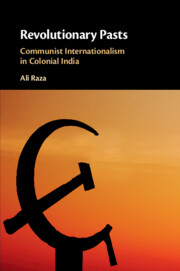Book contents
Epilogue
Utopias Lost
Published online by Cambridge University Press: 13 March 2020
Summary
In the Epilogue, ‘Utopias Lost’, I provide a brief overview of what decolonization and ‘independence’ meant for a partitioned Left on both sides of the Radcliffe line. For many, not much had changed. If anything, both post-colonial states persecuted communists with an equal, if not greater, alacrity than their colonial predecessor. The freedom that had been attained was not the freedom that many had imagined and fought for. This was the starting point for communist politics in both India and Pakistan. Using the communists’ social–economic, political, and ethical conceptions of a post-imperial and post-national azadi (freedom), I ask what revolutionary pasts have to offer us in our present moment when the spectre of parochial and exclusionary nationalism seems to be on the ascendant in South Asia and beyond. At the very least, I argue, a history of the Left encourages a re-envisioning of ethical possibilities and subjectivities in modern South Asia. In doing so, the Left also provides a salutary reminder of how it was, and still is, an essential and integral part of the cultural, social, and political fabric of South Asia. As Overstreet and Windmiller argued in Communism in India, no understanding of Indian history since the First World War is possible without an examination of the communist movement and its relation to world communism and Indian nationalism.
- Type
- Chapter
- Information
- Revolutionary PastsCommunist Internationalism in Colonial India, pp. 241 - 255Publisher: Cambridge University PressPrint publication year: 2020

